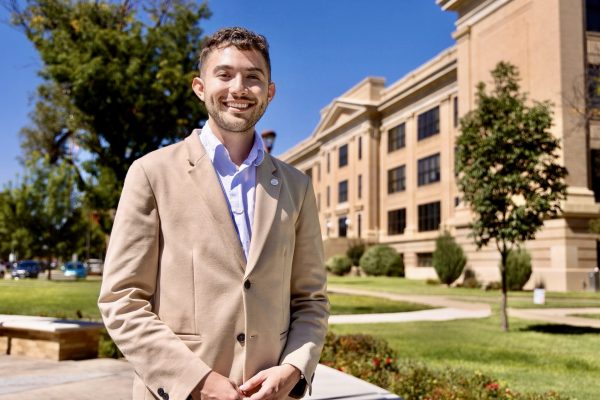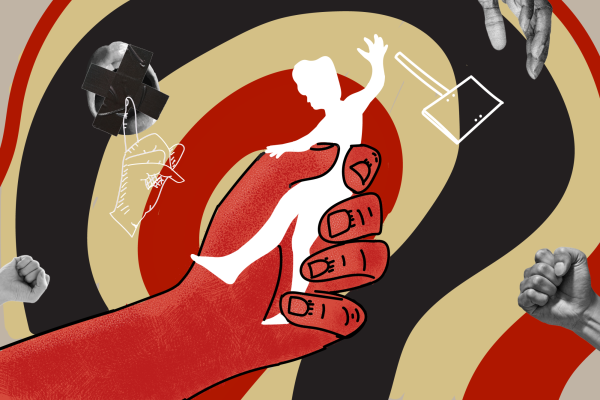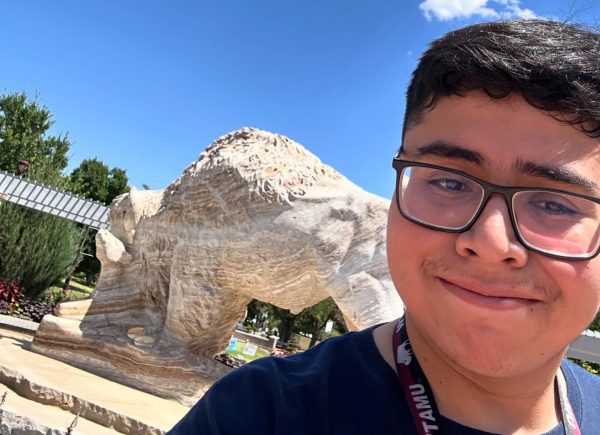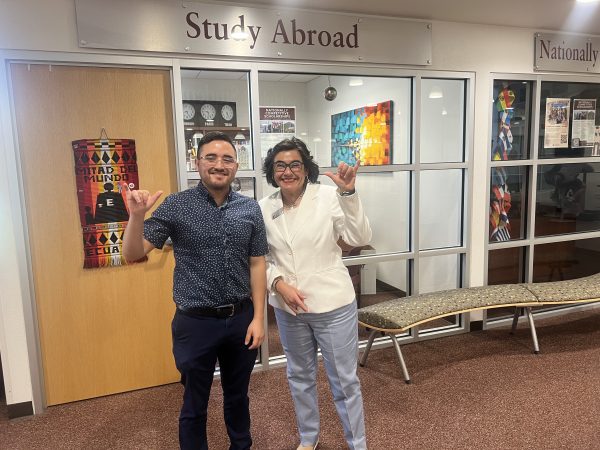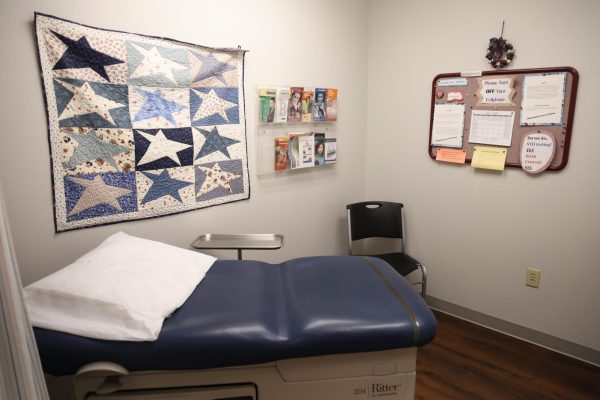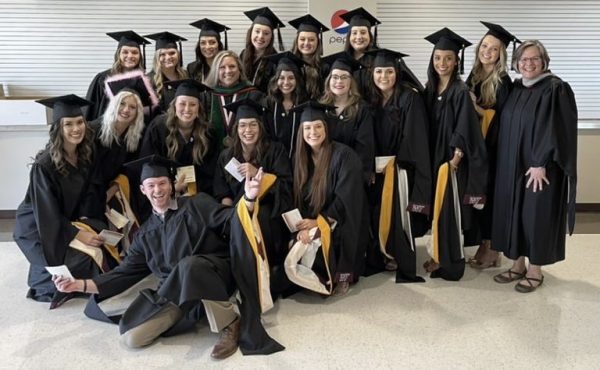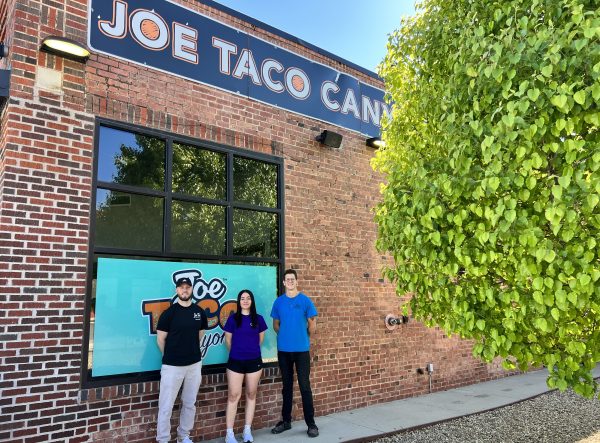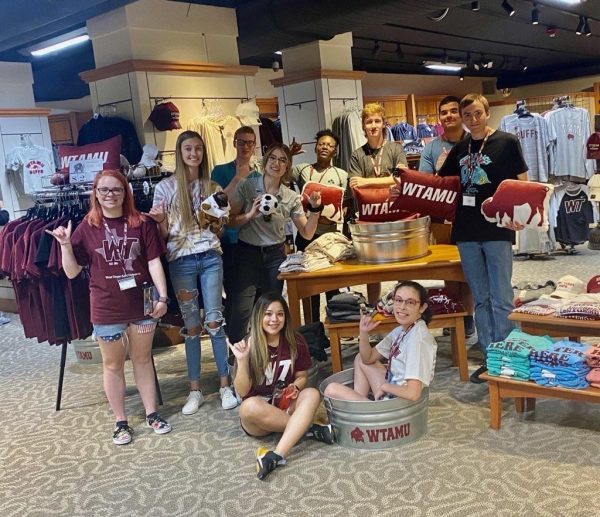Even Ifs… Myths and Misconceptions on Blood Donation
By: Fernanda Frausto
Blood donation is a topic that does not get discussed often because of its negative relation to pain and needles. That doesn’t mean that blood is bad; blood is actually really good. Especially when you donate it to others in need, you may be intrigued to be a part of the greater good but are unsure of what is expected of you as a blood donor. Or you may have horror stories about blood donation that are stopping you from donating. I can assure you it is not all scary and gory. Let’s clear the air about myths and misconceptions surrounding blood donation. Maybe next time, you will be out in a chair saving lives!
Misconception— Phlebotomists are not trained and don’t know what they’re doing.
FALSE; phlebotomists are highly trained professionals. Lamar Scalise, a Supervisor for Donor Services, and Trainer at Coffee Memorial Blood Center in Amarillo, Texas shares the intensive training phlebotomists must go through. This consists of 80 or more hours of class time, multiple sessions of field training and multiple exams to see how well they retain information. With many different types of certifications, phlebotomists have the option of many different career routes. As a result, phlebotomists at donor centers have more advanced qualifications than a general lab phlebotomist at a doctor’s office. They go through specialized FDA regulated training to deliver the best care for blood donors everywhere; so it is safe to say you and your blood will be in good hands.
Myth— You cannot donate if you drink or smoke.
FALSE; non-intravenous drugs ( not directly injected into the body) do not disqualify you from donating blood; which is confirmed by Misty Newsome, Recruitment Manager at Coffee Memorial Blood Center. Time to call all the party animals to the next blood drive!
Misconception— You cannot donate if you have herpes.
True, well, sort of. Herpes comes from the herpes simplex virus, which is categorized into 2 types: HSV-1 and HSV-2. According to the World Health Organization HSV-1 is mainly transmitted by oral-to-oral contact, causing oral herpes including the cold sores and fever blisters around the mouth. HSV-2 is a sexually transmitted infection that causes genital herpes. If you have HSV-1, which includes the sores and blisters around the mouth, you are still eligible to donate as long as you do not have a flare-up at the time of the donation. Since HSV-2 is more closely related to STDsit causes sores around your genitals and can increase the risk of contracting another sexually transmitted disease, such as HIV, which disqualifies you from blood donation. Suppose you still have doubts about your eligibility. In that case, it is always recommended to get tested for STDs, especially if you recently had unprotected sex or have any other reason to suspect that you have any herpes.
Myth— You cannot donate after receiving a tattoo or piercing.
FALSE; show us your fresh ink! Newsome also confirmed that certified tattoo and piercing shops are the most sanitary places to get a tattoo. This is due to state regulations and qualifications they must follow. So as long as you didn’t get your tattoos done in a shady shop, you’re all good to give some blood!
Misconception— Who has time to donate? It takes forever!
FALSE; Donation time can vary from case to case, but you can be in and out in a flash if you come prepared. Presley Mathews, the Account Consultant at Coffee Memorial Blood Center, recommends making an appointment [BG1] online so you have a chair with your name on it as soon as you walk in. Also, drinking tons of water the day before your appointment can help you stay hydrated and make your veins easier to find, which will help your blood flow more easily. Cutting your donation time in half! It may take up about an hour of your time, but that hour can save up to 3 lives.
Myth— Blood doesn’t go bad.
False; blood has a shelf life of only 45 days. This is why donation centers push for people to come in. The daily goal for these donation centers is to bring in at least 120 blood donors to maintain the blood supply for state hospitals. Donation centers usually hold a three-to five-day inventory of blood, which averages 650 units. However, earlier this year, reported by Amarillo Globe News, our local Coffee Memorial Blood Center stated that they were in a blood emergency. With only about 125 units in stock, they had less than a one-day blood supply for all the hospitals in Amarillo’s region.
Being able to understand blood donation can directly impact every member in our community. Life is crazy, and you don’t know what can happen, but one way to help in times of crisis is by giving blood. By giving blood you are helping victims of an unexpected car accident, a new mom who had complications while giving birth, or even one of the many infants fighting cancer. You don’t know who your blood can save until you give, so even if it is out of curiosity, blood donors everywhere encourage you to donate at your next blood drive. Give a pint and save a life!
[BG1] https://www.obi.org/where/donor-centers/coffee-memorial-blood-center/

Hi! I am a senior Advertising/PR major from Perryton, TX. This is my first semester working for The Prairie News where I will be coordinating advertising...



